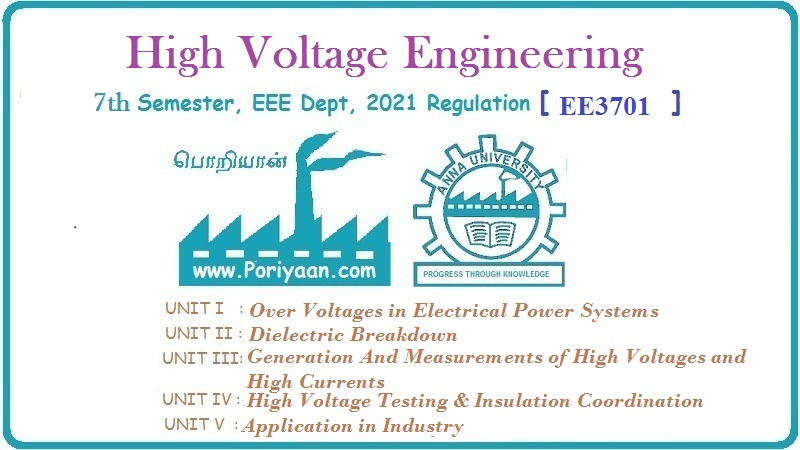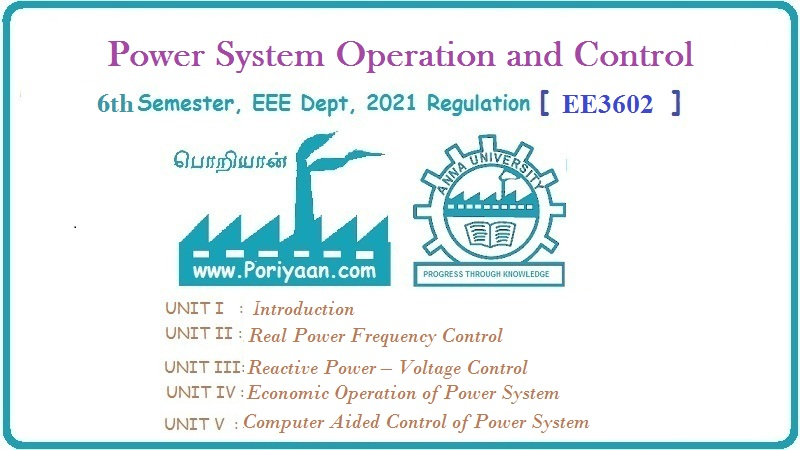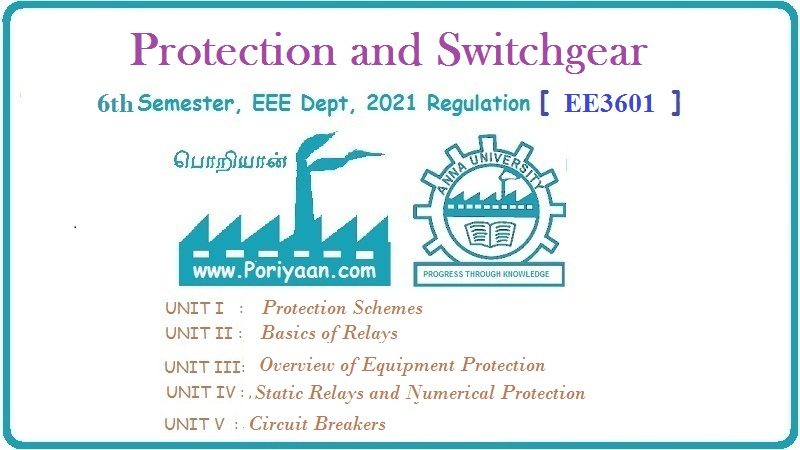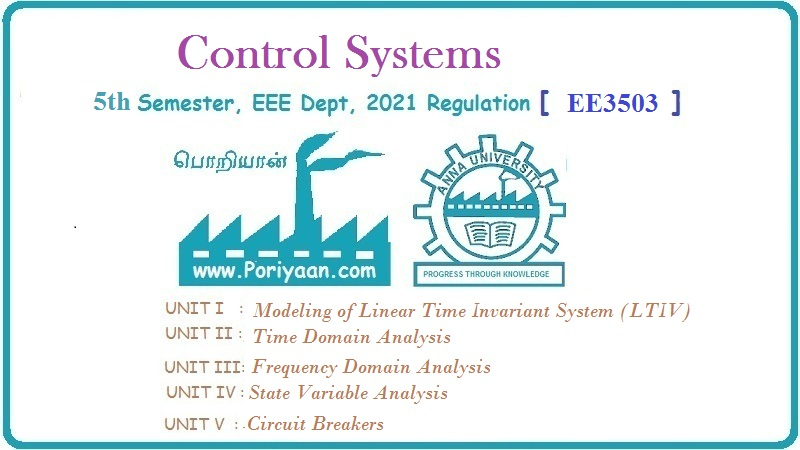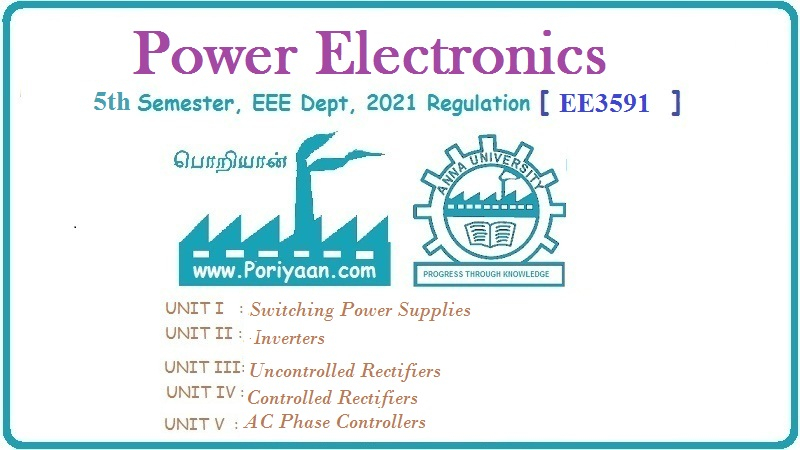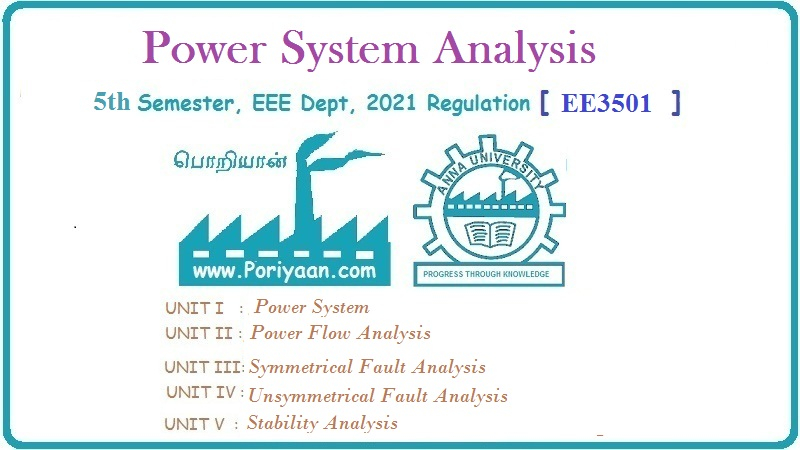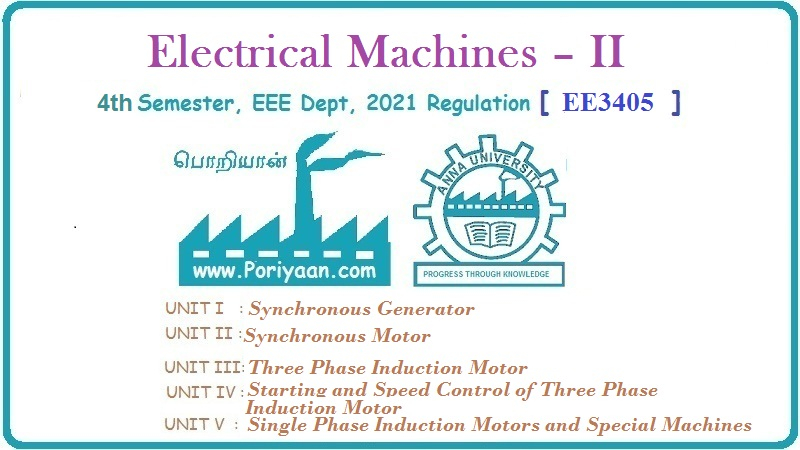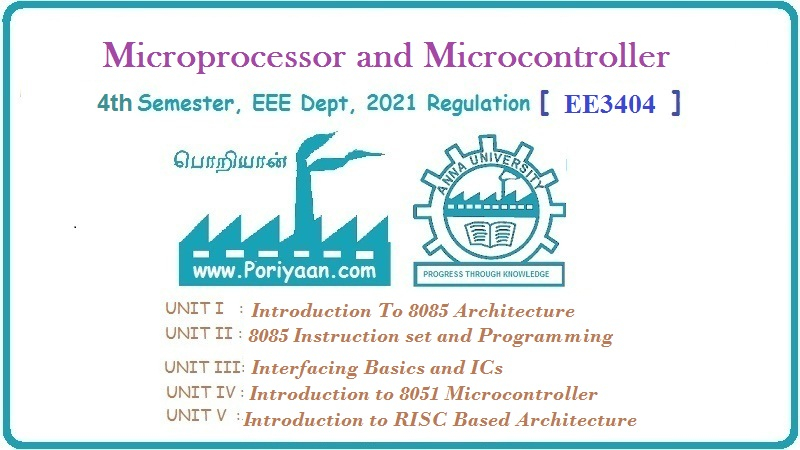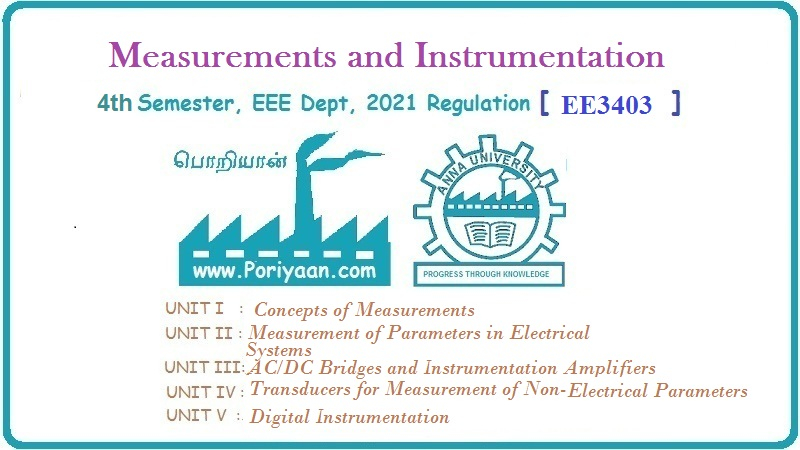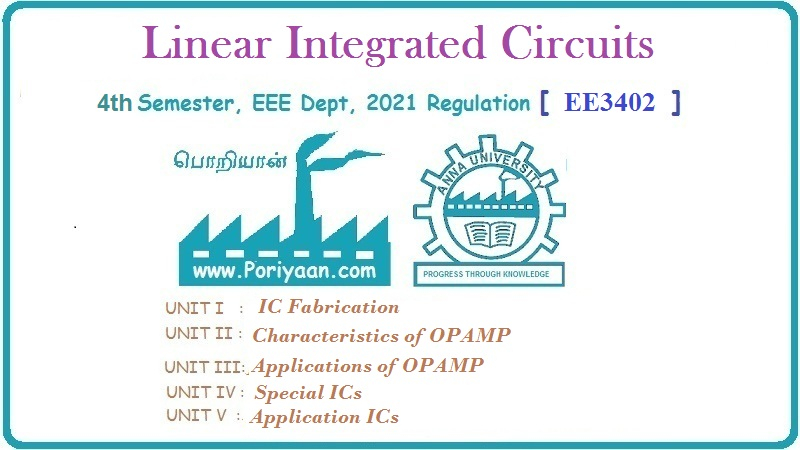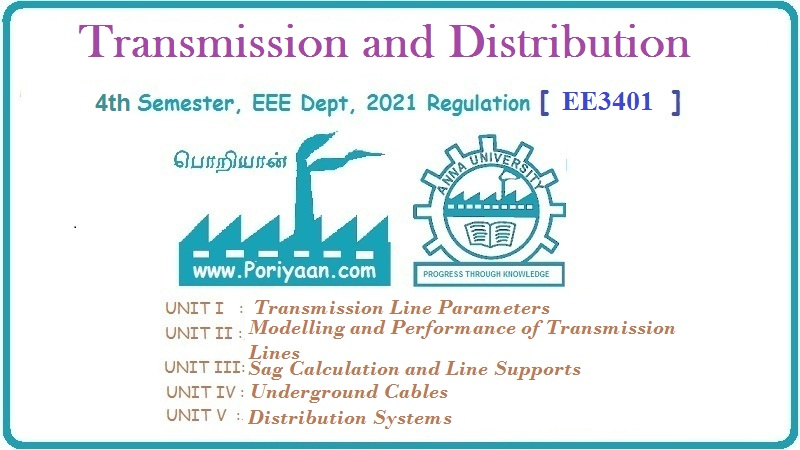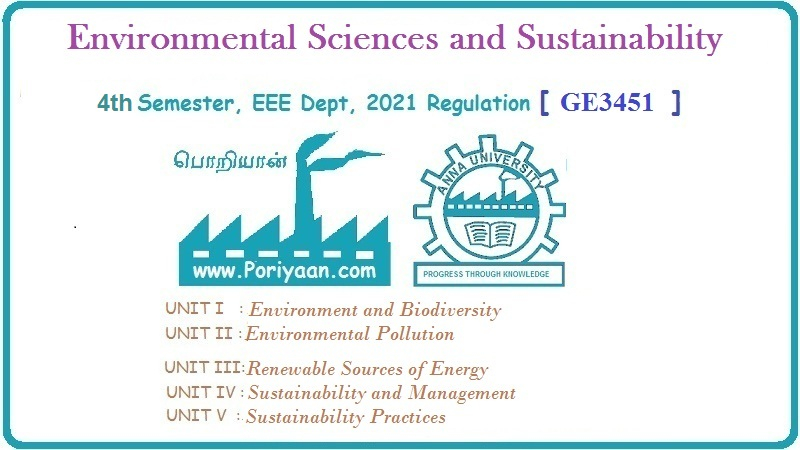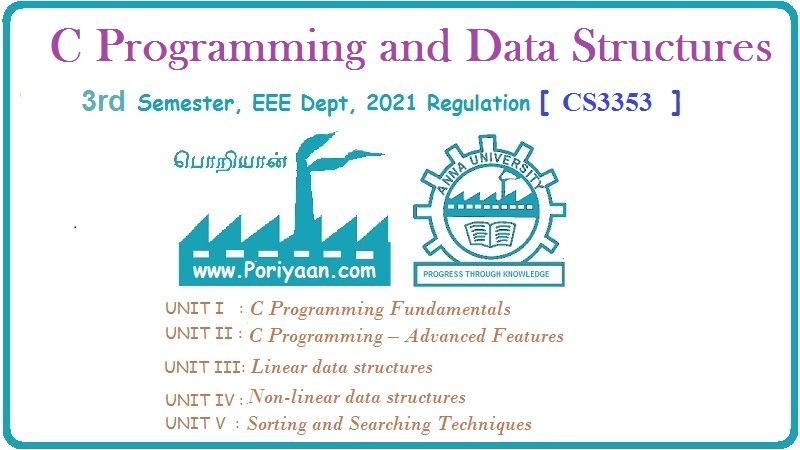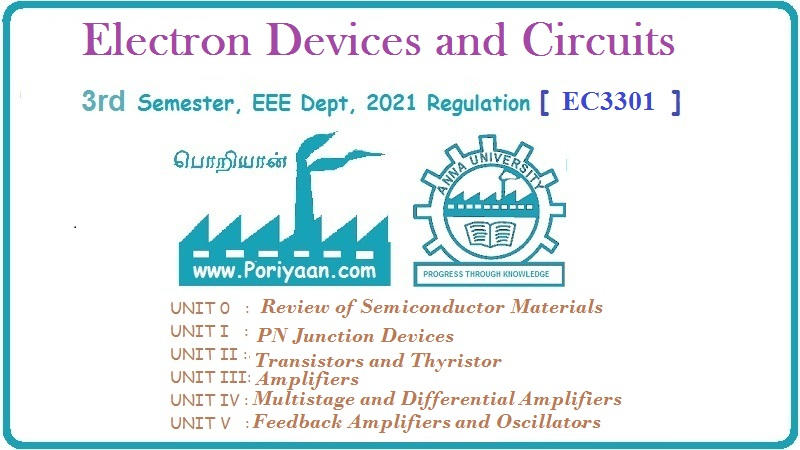Power Electronics
EE3591 PE 5th Semester EEE Dept | 2021 Regulation

2021 regulation - 3rd year, 5th semester paper for EEE Department (Electrical and Electronics Engineering Department). Subject Code: EE3591, Subject Name: Power Electronics, Batch: 2021, 2022, 2023, 2024. Institute: Anna University Affiliated Engineering College, TamilNadu. This page has Power Electronics study material, notes, semester question paper pdf download, important questions, lecture notes.
PDF Download Links
- EE3591 Power Electronics Reg 2017 Nov Dec 2020 Question Paper
- EE3591 Power Electronics Reg 2017 Nov Dec 2019 Question Paper
- EE3591 Power Electronics Reg 2017 Nov Dec 2021 Question Paper
- EE3591 Power Electronics Reg 2013 Nov Dec 2021 Question Paper
- EE3591 Power Electronics Reg 2013 Nov Dec 2020 Question Paper
- EE3591 Power Electronics Reg 2013 Nov Dec 2019 Question Paper
- EE3591 Power Electronics Reg 2013 Nov Dec 2019 Question Paper
- EE3591 Power Electronics Reg 2013 Nov Dec 2018 Question Paper
- EE3591 Power Electronics Reg 2013 Apr May 2019 Question Paper
- EE3591 Power Electronics Reg 2013 Apr May 2018 Question Paper
- EE3591 Power Electronics Reg 2013 Apr May 2018 Question Paper
- EE3591 Power Electronics Reg 2013 May June 2016 Question Paper
- EE3591 Power Electronics Reg 2021 Notes for all unit
- EE3591 Power Electronics Reg 2021 Notes (Unit I)
- EE3591 Power Electronics Reg 2021 Notes (Unit II)
- EE3591 Power Electronics Reg 2021 Notes (Unit III)
- EE3591 Power Electronics Reg 2021 Notes (Unit IV)
- EE3591 Power Electronics Reg 2021 Notes (Unit V)
Power Electronics
Notes and Question Answer of Unit I: Switching Power Supplies will Uploaded shortly...
Notes and Question Answer of Unit II: Inverters will Uploaded shortly...
Notes and Question Answer of Unit III: Uncontrolled Rectifiers will Uploaded shortly...
Notes and Question Answer of Unit IV: Controlled Rectifiers will Uploaded shortly...
Notes and Question Answer of Unit V: AC Phase Controllers will Uploaded shortly...
PDF Download Links
- EE3591 Power Electronics Reg 2017 Nov Dec 2020 Question Paper
- EE3591 Power Electronics Reg 2017 Nov Dec 2019 Question Paper
- EE3591 Power Electronics Reg 2017 Nov Dec 2021 Question Paper
- EE3591 Power Electronics Reg 2013 Nov Dec 2021 Question Paper
- EE3591 Power Electronics Reg 2013 Nov Dec 2020 Question Paper
- EE3591 Power Electronics Reg 2013 Nov Dec 2019 Question Paper
- EE3591 Power Electronics Reg 2013 Nov Dec 2019 Question Paper
- EE3591 Power Electronics Reg 2013 Nov Dec 2018 Question Paper
- EE3591 Power Electronics Reg 2013 Apr May 2019 Question Paper
- EE3591 Power Electronics Reg 2013 Apr May 2018 Question Paper
- EE3591 Power Electronics Reg 2013 Apr May 2018 Question Paper
- EE3591 Power Electronics Reg 2013 May June 2016 Question Paper
- EE3591 Power Electronics Reg 2021 Notes for all unit
- EE3591 Power Electronics Reg 2021 Notes (Unit I)
- EE3591 Power Electronics Reg 2021 Notes (Unit II)
- EE3591 Power Electronics Reg 2021 Notes (Unit III)
- EE3591 Power Electronics Reg 2021 Notes (Unit IV)
- EE3591 Power Electronics Reg 2021 Notes (Unit V)
Power Electronics
Unit I: Switching Power Supplies
Notes and Question Answer of Unit I: Switching Power Supplies will Uploaded shortly...
Unit II: Inverters
Notes and Question Answer of Unit II: Inverters will Uploaded shortly...
Unit III: Uncontrolled Rectifiers
Notes and Question Answer of Unit III: Uncontrolled Rectifiers will Uploaded shortly...
Unit IV: Controlled Rectifiers
Notes and Question Answer of Unit IV: Controlled Rectifiers will Uploaded shortly...
Unit V: AC Phase Controllers
Notes and Question Answer of Unit V: AC Phase Controllers will Uploaded shortly...
PDF Download Links
- EE3591 Power Electronics Reg 2017 Nov Dec 2020 Question Paper
- EE3591 Power Electronics Reg 2017 Nov Dec 2019 Question Paper
- EE3591 Power Electronics Reg 2017 Nov Dec 2021 Question Paper
- EE3591 Power Electronics Reg 2013 Nov Dec 2021 Question Paper
- EE3591 Power Electronics Reg 2013 Nov Dec 2020 Question Paper
- EE3591 Power Electronics Reg 2013 Nov Dec 2019 Question Paper
- EE3591 Power Electronics Reg 2013 Nov Dec 2019 Question Paper
- EE3591 Power Electronics Reg 2013 Nov Dec 2018 Question Paper
- EE3591 Power Electronics Reg 2013 Apr May 2019 Question Paper
- EE3591 Power Electronics Reg 2013 Apr May 2018 Question Paper
- EE3591 Power Electronics Reg 2013 Apr May 2018 Question Paper
- EE3591 Power Electronics Reg 2013 May June 2016 Question Paper
- EE3591 Power Electronics Reg 2021 Notes for all unit
- EE3591 Power Electronics Reg 2021 Notes (Unit I)
- EE3591 Power Electronics Reg 2021 Notes (Unit II)
- EE3591 Power Electronics Reg 2021 Notes (Unit III)
- EE3591 Power Electronics Reg 2021 Notes (Unit IV)
- EE3591 Power Electronics Reg 2021 Notes (Unit V)

EE3591
POWER ELECTRONICS
COURSE OBJECTIVES:
•
To understand the various applications of power electronic devices for
conversion, control and conditioning of the electrical power and to get an
overview of different types of power semiconductor devices and their dynamic
characteristics.
•
To understand the operation, characteristics and performance parameters of controlled
rectifiers.
•
To study the operation, switching techniques and basic topologies of DC-DC
switching regulators.
•
To learn the different modulation techniques of pulse width modulated inverters
and to understand harmonic reduction methods.
•
To study the operation of AC voltage controller and various configurations of
AC voltage controller.
UNIT I
SWITCHING POWER SUPPLIES
MOSFET
dynamic behavior - driver and snubber circuits - low power high switching
frequency per circuit switching Power supplies, buck, boost, buck-boost
converters - Isolated topologies - resonant converters - switching loss
calculations and thermal design.
UNIT II
INVERTERS
IGBT:
Static and dynamic behavior - single phase half bridge and full bridge
inverters - VSI (1phase and three phase inverters square wave operation) -
Voltage control of inverters single, multi pulse, sinusoidal, space vector
modulation techniques- various harmonic elimination techniques-CSI
UNIT III
UNCONTROLLED RECTIFIERS
Power
Diode - half wave rectifier - mid-point secondary transformer based full wave
rectifier - bridge rectifier - voltage doubler circuit - distortion factor -
capacitor filter for low power rectifiers - LC filters - Concern for power
quality - three phase diode bridge.
UNIT IV
CONTROLLED RECTIFIERS
SCR-Two
transistor analogy based turn- ON turn ON losses thermal protection -
controlled converters (1 pulse, 2 pulse, 3 pulse, 6 pulse) - displacement
factor - ripple and harmonic factor - power factor mitigation, performance
parameters - effect of source inductance - inverter angle limit.
UNIT V
AC PHASE CONTROLLERS
TRIAC
triggering concept with positive and negative gate pulse triggering, TRIAC
based phase controllers - various configurations for SCR based single and three
phase controllers.
COURSE OUTCOMES:
Upon
the successful completion of the course, students will be able to:
CO1:
Understand the operation of semiconductor devices and dynamic characteristics
and to design &analyze the low power SMPS
CO2:
Analyze the various uncontrolled rectifiers and design suitable filter circuits
CO3:
Analyze the operation of the n-pulse converters and evaluate the performance parameters
CO4:
Understand various PWM techniques and apply voltage control and harmonic
elimination methods to inverter circuits.
CO5:
Understand the operation of AC voltage controllers and its applications.
TOTAL:
45 PERIODS
TEXT BOOKS:
1.
Ned Mohan, T.M.Undeland, W.P.Robbins, "Power Electronics: Converters,
applications and design", John Wiley and Sons, 3rd Edition (reprint), 2009
2.
Rashid M.H., Power Electronics Circuits, Devices and Applications, Prentice
Hall India, 3rd Edition, New Delhi, 2004.
REFERENCES:
1.
Cyril. W. Lander, Power Electronics, McGraw Hill International, Third Edition,
1993.
2.
P.S.Bimbhra, Power Electronics, Khanna Publishers, Third Edition 2003
3.
Philip T.Krein, Elements of Power Electronics, Oxford University Press, 2013.
4.
P.C.Sen, Power Electronics, Tata McGraw-Hill, 30th reprint, 2008.
Power Electronics: Unit I: Switching Power Supplies,, Power Electronics: Unit II: Inverters,, Power Electronics: Unit III: Uncontrolled Rectifiers,, Power Electronics: Unit IV: Controlled Rectifiers,, Power Electronics: Unit V: AC Phase Controllers 5th Semester EEE Dept 2021 Regulation : EE3591 PE 5th Semester EEE Dept | 2021 Regulation Power Electronics
